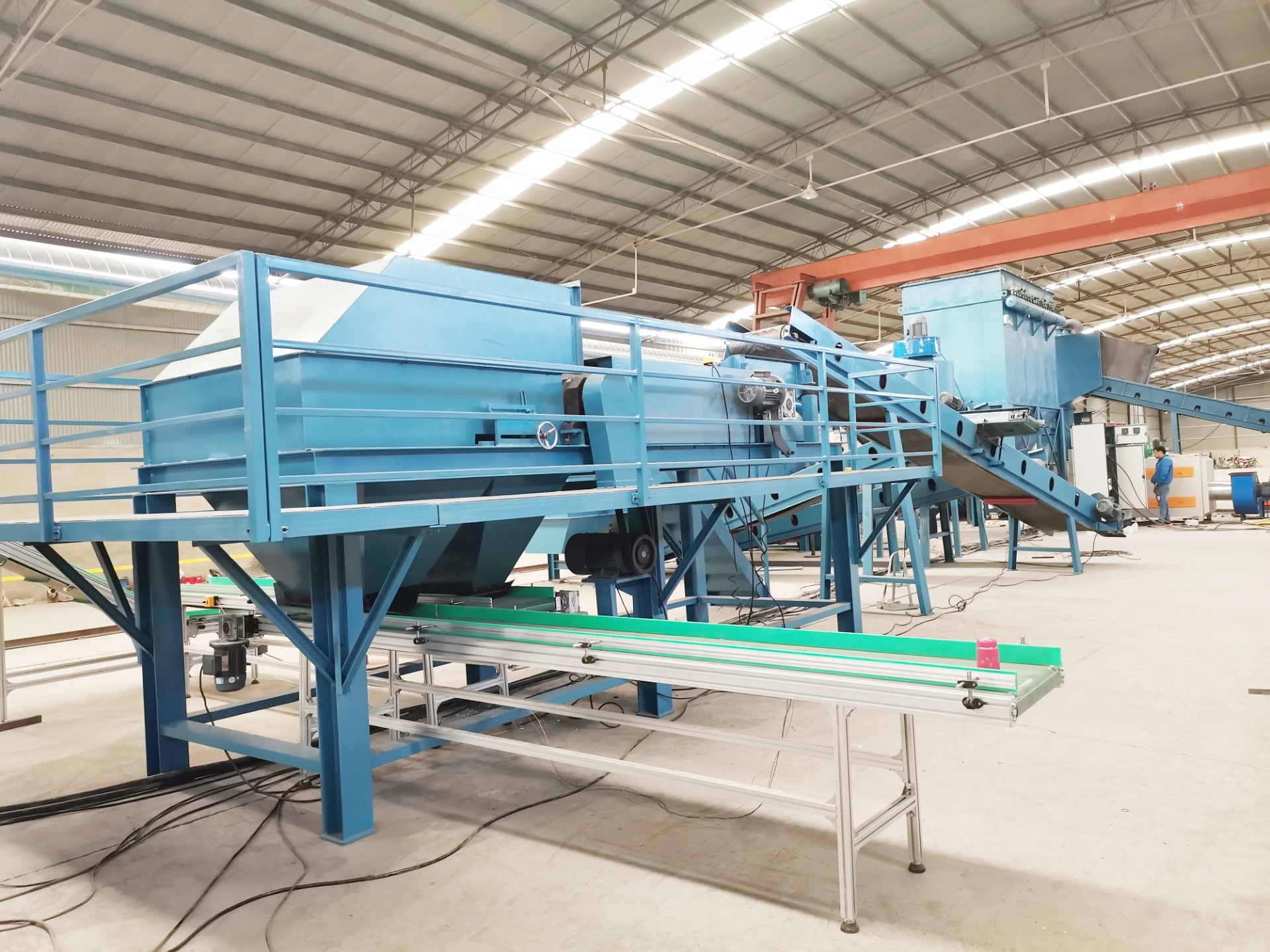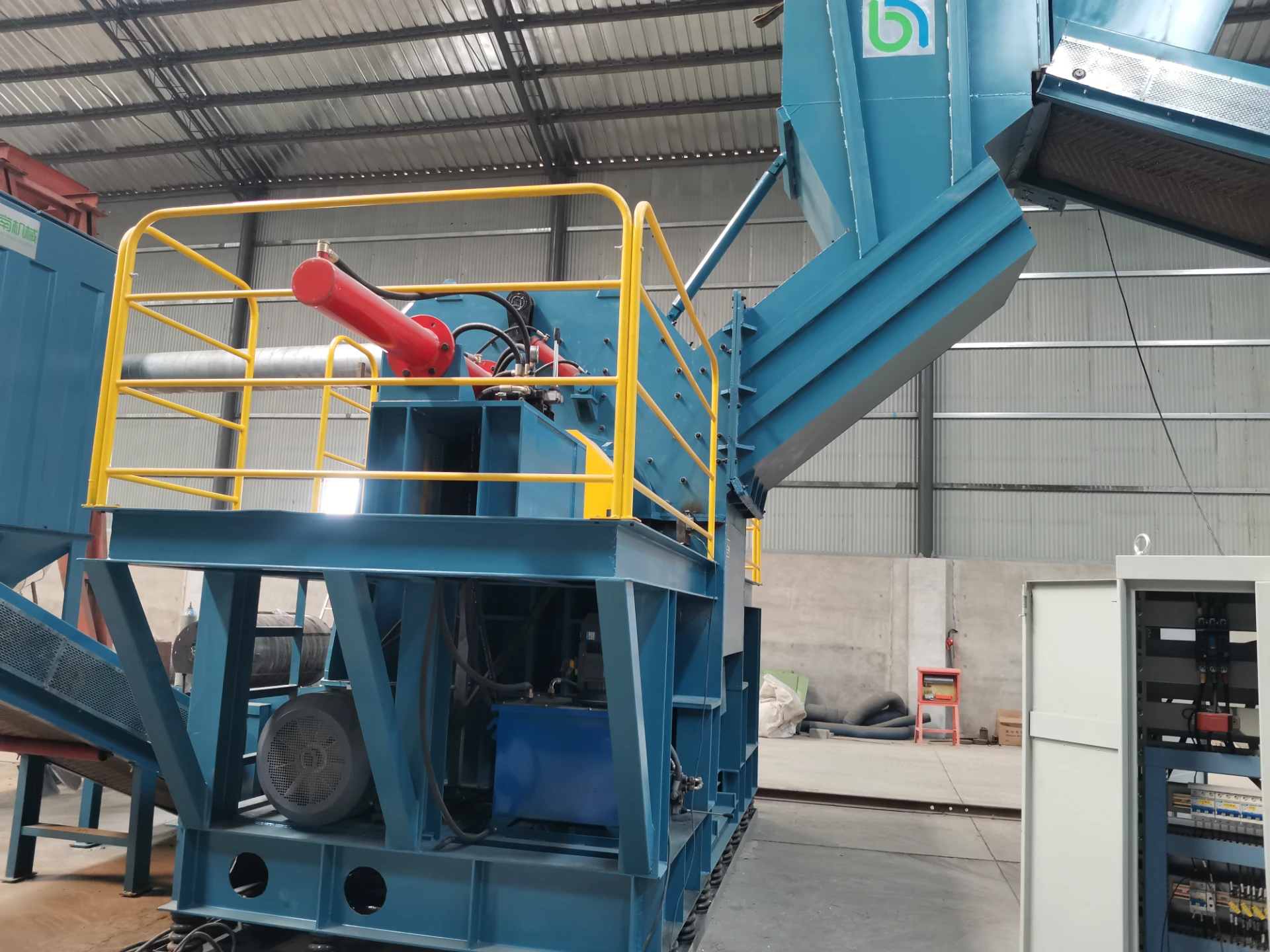Metal recycling plants play a pivotal role in the sustainable management of resources, transforming end-of-life metal products into reusable materials through advanced technological processes. These facilities are at the forefront of advocating for environmental preservation by reducing the dependency on virgin ores and decreasing energy consumption associated with metal production. Drawing from extensive industrial experience, the following content elucidates the intricate operations and profound impact metal recycling plants have on industries and the environment.

Metal recycling plants operate through a series of sophisticated processes designed to efficiently separate, process, and purify various metals. Typically, the recycling process begins with the collection of scrap metal from industrial sites, demolitions, and consumer waste. Experienced professionals in metal recycling understand the critical importance of quality control in this initial stage. Each metal type is meticulously sorted with precision to maximize the purity of the end product; ferrous metals are separated from non-ferrous ones using magnets, while advanced detection systems employ eddy current technology to identify non-magnetic metals such as aluminum and copper.
Once sorted, the metals undergo a shredding process, breaking down large items into smaller pieces that are easier to handle. Expertise in material science aids in optimizing this process, ensuring maximum surface area for subsequent melting. The shredded metal is then subjected to a powerful magnet for a secondary ferrous separation, enhancing the quality further. High-level expertise is crucial here as it determines the efficiency of resource use and the quality of secondary raw materials produced.

Melting is the next phase, where industry-grade furnaces designed specifically for recycling are employed to melt the sorted metals at controlled temperatures. The energy efficiency of these operations is vital, often achieved through innovations in thermal energy management. For example, some plants utilize induction-based furnaces that significantly reduce energy loss compared to traditional methods. The molten metal is then cast into specific forms such as bars or sheets, which are easier to handle and transport to manufacturing facilities.
The value of expertise in metal recycling plants cannot be overstated, particularly when it comes to the refinement phase. During refinement, impurities are removed from the molten metal. Techniques such as electrolysis and fractional distillation are employed to ensure high-grade purity. This step not only significantly influences the quality of recycled metal products but also impacts the economic viability of recycling operations, as higher purity levels translate to better market prices for the recycled metals.
metal recycling plant
Metal recycling plants stand as authoritative figures in environmental stewardship. By recycling metals, these plants significantly reduce the carbon footprint associated with metal production. The process of extracting metals from ores is energy-intensive, releasing large amounts of greenhouse gases. Recycling metal can use up to 95% less energy for aluminum and up to 60% less for steel, marking metal recycling plants as critical allies in the fight against climate change.
Further underscoring their authority, metal recycling plants contribute significantly to resource conservation. With finite reserves of metal ores, the ability to reuse existing metals ensures the longevity of these resources. Additionally, recycling minimizes the need for landfills, mitigating the environmental and human health impacts posed by waste accumulation. Trust in metal recycling practices is cultivated through adherence to strict environmental regulations and standards, ensuring that operations are safe, efficient, and minimally intrusive to the local ecosystem.
In terms of trustworthiness, leading metal recycling plants maintain transparency in their operations through certifications and regular audits. Many facilities engage in partnerships with prestigious environmental bodies and industry watchdogs to uphold sustainable practices. By showcasing commitment to ethical recycling principles, they not only boost community trust but also set precedents within the industry for others to follow.
In conclusion, metal recycling plants are indispensable in the modern industrial landscape, utilizing expert processes to turn waste into wealth while actively participating in the global sustainability agenda. With a foundation built on experience, expertise, authority, and trustworthiness, these facilities drive forward eco-friendly practices, proving indispensable in the transition towards a circular economy where materials are continuously reused and repurposed.



